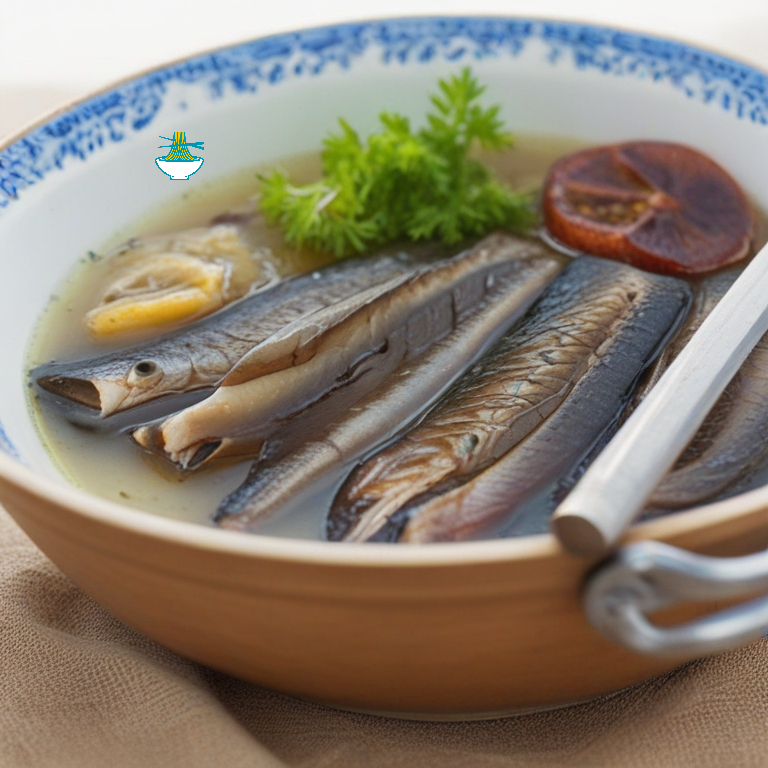Finkubala is a traditional Zambian ingredient consisting of smoked or dried fish. It is often used in soups and stews, adding a rich and smoky flavor to the dish. This recipe presents a straightforward method of preparation, combining Finkubala with onions, tomatoes, and basic seasonings for a flavorful and hearty meal.
Finkubala has been a staple in Zambian cuisine for generations, showcasing the country's reliance on locally sourced ingredients and traditional cooking methods. The use of smoked or dried fish reflects Zambia's culinary heritage, where preserving and utilizing natural resources have been essential in creating delicious and nutritious meals.
Ingredients:
- 500 grams of Finkubala (smoked or dried fish)
- 1 onion, finely chopped
- 2 tomatoes, diced
- 2 tablespoons of cooking oil
- Salt and pepper to taste
- Water for cooking
Method of Preparation:
1. Rinse the Finkubala thoroughly to remove excess salt or smoke residue. If using dried fish, soak it in water for about 1 hour to rehydrate.
2. Heat the cooking oil in a pot over medium heat. Add the chopped onions and sauté until they turn translucent.
3. Add the diced tomatoes to the pot and cook until they soften and release their juices.
4. Place the rinsed Finkubala in the pot with the onions and tomatoes. Stir well to combine with the vegetables.
5. Season with salt and pepper according to your taste preferences.
6. Pour enough water into the pot to cover the Finkubala and vegetables.
7. Bring the mixture to a boil, then reduce the heat and let it simmer for about 15-20 minutes, or until the Finkubala is tender and flavorful.
8. Adjust the seasoning if needed and serve hot as a soup or stew, traditionally accompanied by nshima or other staple foods.
Nutrition Value:
1. 500 grams of Finkubala (smoked or dried fish):
- Calories: Varies depending on the type and preparation method (typically around 300-400 calories per 100 grams).
- Carbohydrates: Negligible (less than 1 gram per 100 grams).
- Protein: High in protein, with approximately 60-80 grams per 100 grams.
- Fat: Varies based on the fish and smoking/drying process (usually 10-20 grams of fat per 100 grams).
- Sodium: Can be high in sodium, ranging from 500-1500 mg per 100 grams.
- Cholesterol: Varies but can be significant, with around 50-100 mg per 100 grams.
- Vitamins and Minerals: Rich in vitamin B12, omega-3 fatty acids, phosphorus, and selenium.
- Nutritional Benefits: Provides essential proteins, healthy fats, and nutrients like omega-3s for heart health, vitamin B12 for nerve function, and selenium for antioxidant properties.
2. 1 onion, finely chopped:
- Calories: Approximately 40-50 calories per medium-sized onion.
- Carbohydrates: Around 10-12 grams per onion.
- Protein: About 1 gram per onion.
- Fat: Minimal (less than 1 gram per onion).
- Sodium: Very low (less than 5 mg per onion).
- Cholesterol: None.
- Vitamins and Minerals: Good source of vitamin C, vitamin B6, and potassium.
- Nutritional Benefits: Provides antioxidants, supports immune function, and adds flavor to dishes without adding many calories.
3. 2 tomatoes, diced:
- Calories: Approximately 20-30 calories per medium-sized tomato.
- Carbohydrates: Around 4-5 grams per tomato.
- Protein: About 1 gram per tomato.
- Fat: Minimal (less than 1 gram per tomato).
- Sodium: Very low (less than 5 mg per tomato).
- Cholesterol: None.
- Vitamins and Minerals: High in vitamin C, vitamin A, potassium, and lycopene.
- Nutritional Benefits: Supports heart health, provides antioxidants, and contributes to skin and eye health.
4. 2 tablespoons of cooking oil:
- Calories: Around 240 calories per 2 tablespoons (depending on the type of oil).
- Carbohydrates: None.
- Protein: None.
- Fat: Approximately 28 grams per 2 tablespoons.
- Sodium: Varies depending on the oil (usually very low).
- Cholesterol: Varies depending on the oil (can be zero for some vegetable oils).
- Vitamins and Minerals: Provides vitamin E and healthy fats (if using unsaturated oils).
- Nutritional Benefits: Adds flavor and texture to dishes, contributes essential fatty acids for overall health.
5. Salt and pepper to taste:
- Calories: Negligible (less than 5 calories per teaspoon of salt or pepper).
- Carbohydrates: None.
- Protein: None.
- Fat: None.
- Sodium: Approximately 2300 mg per teaspoon of salt.
- Cholesterol: None.
- Vitamins and Minerals: Minimal (some trace minerals in salt).
- Nutritional Benefits: Enhances flavor but should be used in moderation due to high sodium content.
6. Water for cooking:
- Calories: None.
- Carbohydrates: None.
- Protein: None.
- Fat: None.
- Sodium: None.
- Cholesterol: None.
- Vitamins and Minerals: None.
- Nutritional Benefits: Essential for hydration and cooking processes, helps maintain body functions.
These nutritional values are approximate and can vary based on factors such as the specific type and brand of ingredients used.


Comments